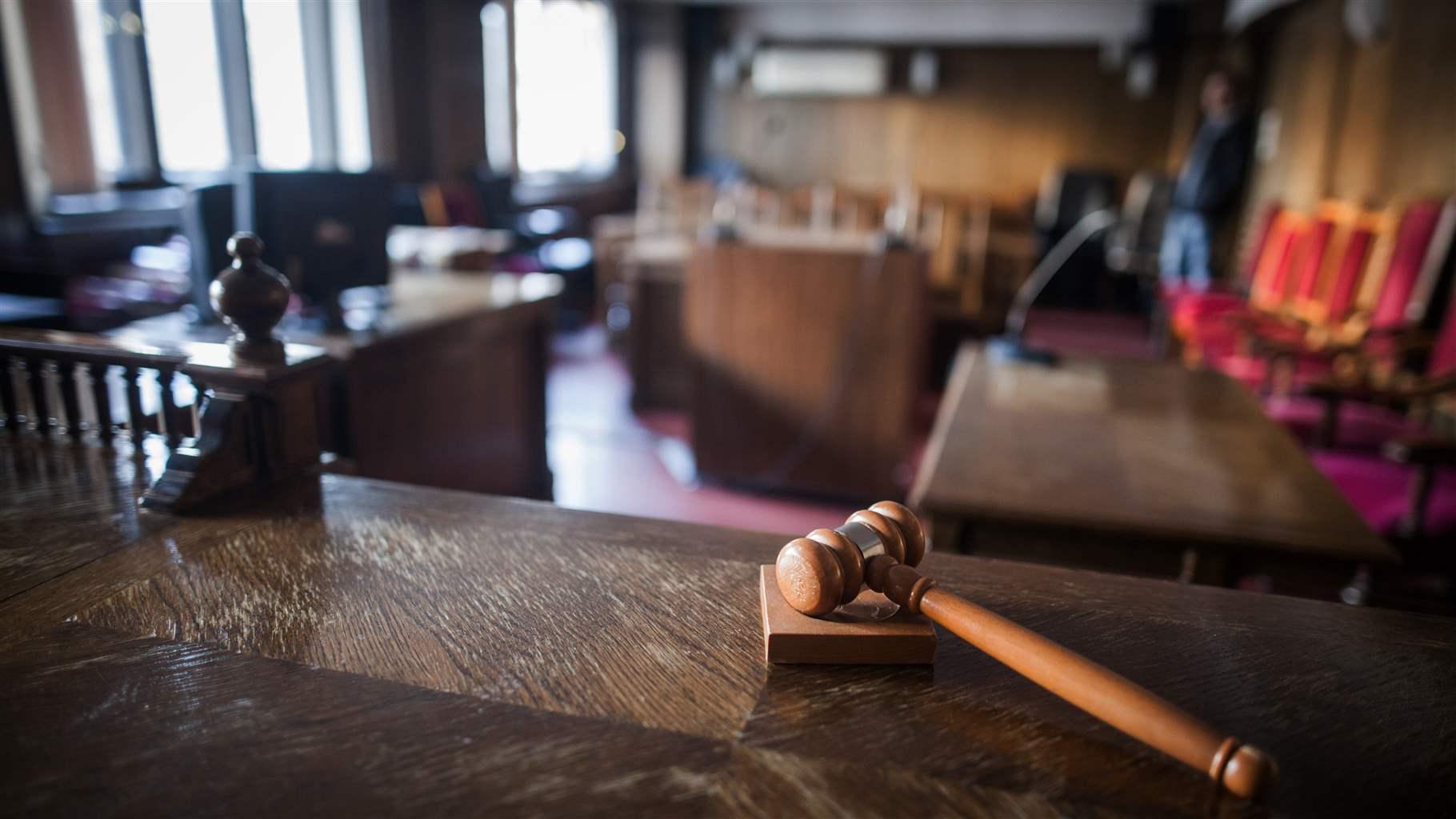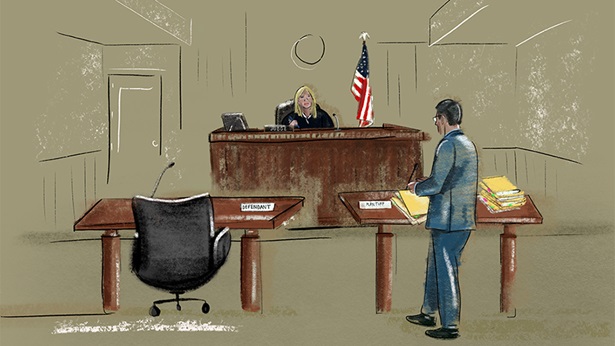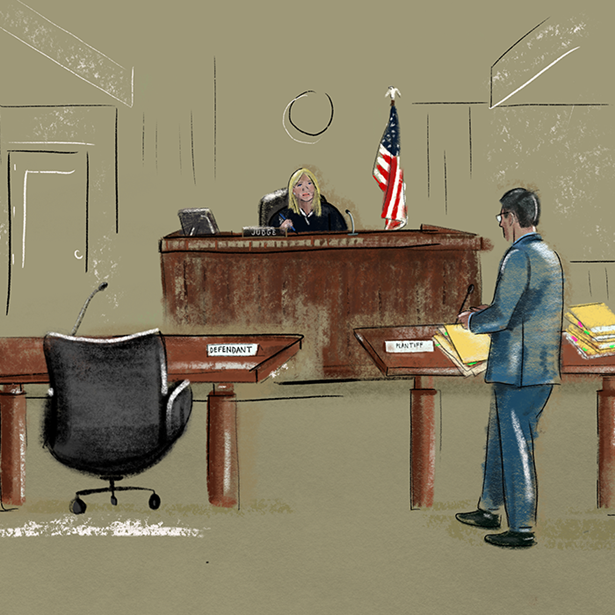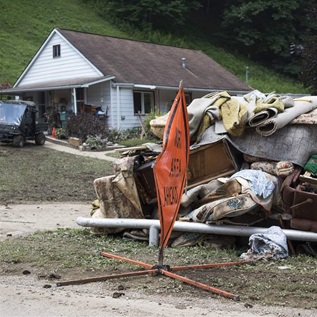State Leaders Seek More Equitable Processes for Handling Debt Collection Cases
3 key takeaways emerge from discussion among Great Lakes legal aid, foundation, and government policy leaders

As levels of consumer debt continue to rise and state civil courts attempt to implement new technologies enacted during the pandemic, court leaders and administrators have a historic opportunity to address the growing need to change how they handle debt collection lawsuits.
In May 2020, The Pew Charitable Trusts released findings showing how the rise of these lawsuits has come to dominate state courts, inflating costs and bringing consequences for courts, businesses, and consumers. Since then, state legislatures, the Consumer Financial Protection Bureau (CFPB), and court leaders have begun to act on this issue, which has long flown under the radar in part because of a lack of good data about what happens in court.
To build on this momentum, Pew, with support from The Joyce Foundation, gathered in Chicago court, legal advocacy, and state executive leaders from the Great Lakes states to discuss the challenges and potential innovative solutions for improving debt collection processes.
At the December session, participants from Illinois, Indiana, Michigan, Minnesota, Ohio, and Wisconsin spent time reflecting on how the high-volume of debt collection lawsuits means they represent one of the most common and primary touchpoints between courts and their communities. These cases also have an outsized impact on community economic stability. Court collection tools such as wage garnishment and costs added to amounts owed through the court process can create significant challenges to family financial security. Yet, participants noted that many courts have taken little action to address their changing dockets and legal needs in their communities—a reality that participants identified as a contributing factor to the continuing erosion of public trust in the courts to all-time lows.
Dockets are dominated by a handful of companies
Participants at the session grounded their ideas for change in data from the Great Lakes region, which has the second-highest rate of delinquent consumer debt in the country compared with other regions. The discussion focused on metrics that show the high shares of court caseloads that can be attributed to just a few national debt buying companies, most of which are not headquartered in the region. For example, cases brought by just five large national companies make up more than half of Michigan’s and Indiana’s debt collection court dockets. Across the region, several common types of filers emerge when looking at the data: Debt buyers, large national banks, regional hospitals, and auto lending companies file the most lawsuits against individuals for low-dollar amounts.
Looking at Michigan, the median amount claimed in a debt collection lawsuit was $1,600 from 2010 to 2021. The individuals being sued participate in these cases less than 30% of the time, which, combined with the prominence of just a few companies using the courts, has created an environment where the legal system has become an extension of a company’s “assembly-line” of debt collection processes.
A change needed in public perceptions
So, what needs to change? Judge Kimberly Bacon of Lawrence Township Small Claims Court in Indiana noted the need for courts to shift from a punitive approach to a more problem-solving philosophy. “A lot of the debt you see coming through the dockets is born out of the pandemic,” she said, “There are hospital bills, workers losing income, and businesses shutting down. Everyone was impacted.”
Courts, then, have a chance to help solve local problems by creating more user-friendly processes and working collaboratively with community service providers and other branches of government to resolve debt collection lawsuits. Such changes are not meant to reduce accountability for money owed, but to empower people to meaningfully participate in the court process and to ensure that the legal system does not pile additional costs on top of those resulting from private debt collection. This transformation will require enhanced outreach to get people to show up to court—including steps such as text message reminders and providing legal information with court forms—but also policy changes that enable courts to review debts more effectively for validity and accuracy and to be able to connect litigants to community resources.
State-based leaders spoke about ways that existing initiatives could be strengthened or expanded to include debt collection lawsuits. This includes adopting new solutions in a state or replicating efforts already underway in peer jurisdictions. For example, states could:
- Extend the number of services offered at virtual self-help centers that deal primarily with family cases to include debt collection lawsuits.
- Add programming related to debt collection lawsuits to trainings for existing and new judges who hear these cases.
- Craft court-user guides for defendants to build on existing ones designed to support plaintiffs.
- Transfer insights from a redesign of court forms for similar cases—such as eviction—to apply to debt collection.
- Expand the type of caseload statistics published on debt collection lawsuits.
“It is important for courts to prioritize engaging with their communities to build trust,” explained Liza Rios, deputy state court administrator for the Michigan Supreme Court. “To truly do our jobs right, we need our communities to know that we are there to help solve problems.”
More user-friendly and effective court processes are needed now
Participants—ranging from court officials and administrators to representatives from philanthropic institutions and academia—agreed that leaders should capitalize on recent momentum to enact reforms to how debt claims are handled. The pandemic changed how civil courts operate, and there’s an opportunity now to ensure that courts continue to build and improve on those positive policy updates.
Great Lakes states have begun making meaningful changes in the day-to-day processes of civil courts. Most recently, Michigan released a groundbreaking report on how debt collection lawsuits have overwhelmed its civil courts. The state’s Justice for All Commission is now working to implement recommendations that include modernizing serving of process rules, increasing the amount of information included in complaints, and creating court documents and forms that consumers can easily understand.
Meanwhile, Cook County in Illinois has completed the pilot phase of an early resolution program to handle eviction and debt collection cases virtually by connecting consumers with mediation and legal aid resources. The program slows the court process to create more time for parties to reach an equitable resolution and give court officials time to review certain cases for compliance with rules requiring documentation to substantiate the debts and approve settlements.
These states and counties show that leaders and officials can create court policies and practices that better serve their communities—sustainable changes driven by data, evidence, and a strong commitment to a more equitable civil court process.
Natasha Khwaja works on The Pew Charitable Trusts’ civil legal system modernization project.


America’s Overdose Crisis
Sign up for our five-email course explaining the overdose crisis in America, the state of treatment access, and ways to improve care
Sign up

Michigan Courts Seek Justice in Debt Collection Lawsuits


How State Civil Courts Handle Debt Collection Lawsuits












